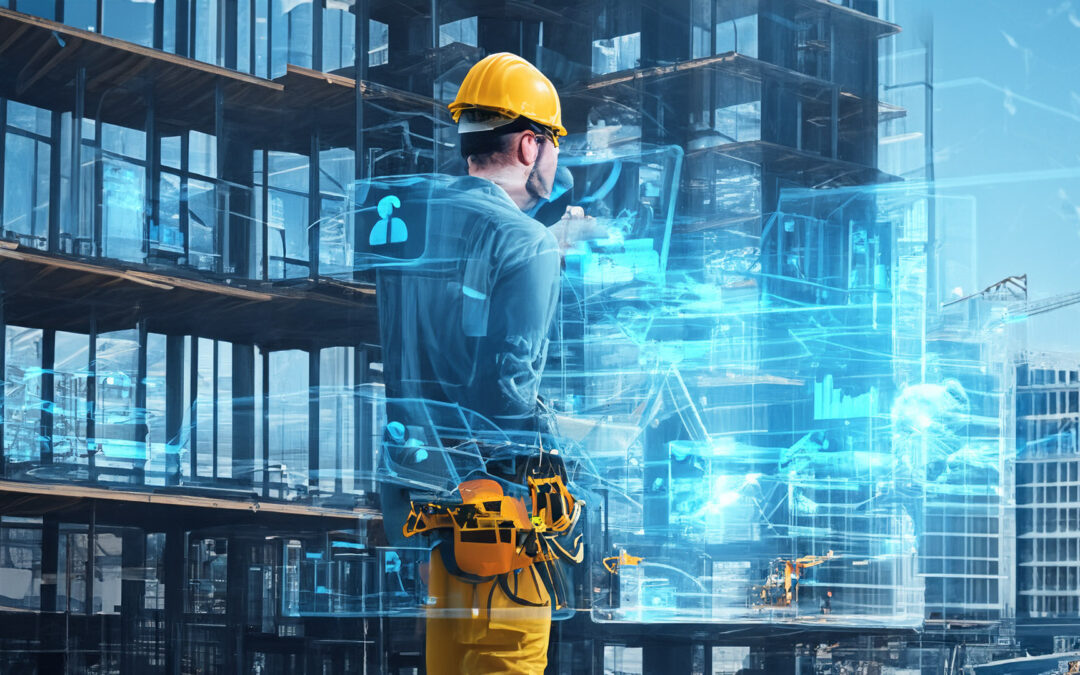The commercial construction industry is undergoing a significant transformation, driven by technological advancements that are reshaping traditional practices and setting new standards. From innovative materials to cutting-edge project management tools, these developments are revolutionizing the way buildings are designed, constructed, and managed. Here’s a look at some of the key technology trends influencing the future of commercial construction.
Technology Developments
1. Building Information Modeling (BIM)
Building Information Modeling (BIM) stands at the forefront of modern construction practices. This technology creates a digital representation of a building’s physical and functional characteristics, enabling comprehensive planning, design, and management throughout the project lifecycle. BIM allows stakeholders to visualize the entire structure in a virtual environment, which improves decision-making, reduces errors, and enhances overall efficiency.
2. Prefabrication and Modular Construction
Prefabrication and modular construction techniques are transforming the industry by offering faster, more cost-effective, and sustainable building solutions. By assembling building components off-site in controlled factory settings, construction time is shortened, on-site disruptions are minimized, and safety is improved. Additionally, these methods promote resource efficiency and waste reduction, aligning with the growing demand for environmentally friendly practices.
3. Advanced Materials and Sustainable Solutions
The use of advanced materials, such as high-performance concrete, engineered timber, and carbon fiber composites, is enhancing the capabilities of commercial construction. These materials contribute to greater structural integrity, energy efficiency, and durability. The focus on sustainable construction is also driving innovations in renewable energy systems, green roofs, and water-saving technologies, which support eco-friendly building practices.
4. Robotics and Automation
Robotics and automation are revolutionizing construction processes by streamlining repetitive tasks and boosting productivity. Technologies like robotic bricklayers, 3D-printed structures, and autonomous construction vehicles are changing the labor-intensive nature of construction work. Automation helps optimize resource use, reduce labor costs, and accelerate project timelines.
5. Internet of Things (IoT) and Smart Building Technologies
The integration of IoT devices and smart building technologies is transforming commercial properties into interconnected ecosystems. Embedded sensors provide real-time monitoring of environmental conditions, occupancy levels, and energy consumption. This data-driven approach allows building operators to enhance performance, improve occupant comfort, and implement proactive maintenance strategies, thereby increasing the operational efficiency of commercial structures.
6. Augmented Reality (AR) and Virtual Reality (VR)
Augmented Reality (AR) and Virtual Reality (VR) are revolutionizing both the design and construction phases. VR simulations offer immersive experiences, allowing architects and engineers to explore building designs virtually and identify potential issues before construction begins. AR applications enable on-site workers to overlay digital models onto physical spaces, providing valuable insights and aiding collaborative decision-making.
The integration of technology into commercial construction is driving innovation, efficiency, and sustainability within the industry. As these advancements continue to develop, the future of construction holds exciting possibilities and transformative potential. For more updates on commercial construction in Southern California and to learn how Creed LA’s efforts are impacting your community, visit https://creedla.com

